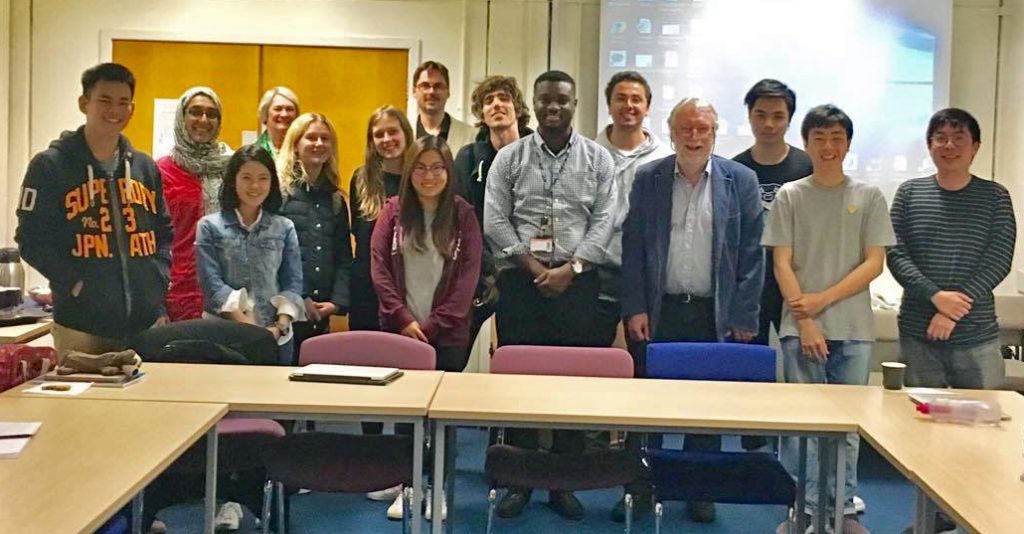A new series of environmental law seminars has begun at Kent Law School with a talk by alumnus Dr Emmanuel Osuteye on disaster risk management in countries in Africa.
Dr Osuteye, now working as a Researcher with the Development Planning Unit at University College London, delivered a talk entitled ‘Shifting the Focus from Major Disasters to Everyday Risks: An investigation of risks in informal settlements, with focus on Ghana, Sierra Leone, Malawi, Tanzania and The Gambia.’
In his seminar, Dr Osuteye argued for a shift in the way disasters and risks are defined. The United Nations Office for Disaster Risk Reduction, UNISDR, categorises a large-scale disaster as: a hazard which has killed at least 30 persons and/or destroyed at least 600 houses. While it is important that large scale disasters are handled and remedied, Dr Osuteye’s current research instead focuses on what can be called ‘everyday risks’ such as crime management, persistent air pollution, waste management, and normal diseases. These are not things that will be found in newspaper headlines, but they are things that people are living with that are causing them harm, every day, especially in informal settlements. Everyday risks often build up over time, and trap the people in informal settlements in cycles of risk accumulation, which it becomes very hard to break out of. It is these widespread conditions of vulnerability that need to be better understood and properly addressed, that are the objective of Dr Ostueye’s research.
His team have been measuring environmental, social and economic risks in informal settlements, and want to encourage policy and community action to address these hazards. The methodology of the project is looking to use the opinions of people to shape policy. This means meeting the local populations and asking about their perception of local threats. Different people will rank different risks in different areas. For example, 186 people rated crime as one of the greatest challenges in an area, while only 51 people mentioned wanting improved access to healthcare. Dr Ousuteye said: ‘This means that in this area we need to do something about crime, rather than expand the healthcare facilities.’ Dr Osuteye said a blanket approach to policy will not work in the case of tackling everyday risks: ‘We need their voices in the form of experiences – and then we need to investigate the policy around those experiences.’
At the moment, many policy changes are left in draft form, or are often slowed down by political interference. However, Dr Osuteye is seeing positive results of the small scale, action focused research in the communities: ‘Going to a big city it’s hard to manifest your argument, but in a smaller community you usually find it easier to get things done, as the invested interest for change is higher.’ The point is to make it clear that big scale policies are not always applicable to smaller communities. The investigation of risks in informal settlements is a way to base policy changes on the opinions and experiences of the local population to break the circle of hazards that they are living in, and thereby effectively improve their situations.
Report by Kent LLM student Saga Rad (who co-organised the seminar with fellow Kent LLM students Suthanya, and Voramon).
The Environmental Law Seminar Series has been designed specifically for students with an interest in the environmental law modules offered within the School’s one-year Master’s in Law programme, the Kent LLM.
Kent LLM students can graduate with a specialism in either Environmental Law or International Environmental Law by (i) opting to study at least three (out of six) modules from those associated with the specialism of their choice and by (ii) focusing the topic of their dissertation on their chosen specialism.
More information about environmental law research, events and academics at Kent can be found on the Environmental Law mini-site. More information about studying the Kent LLM (and choosing your specialism) can be found on our postgraduate pages.

